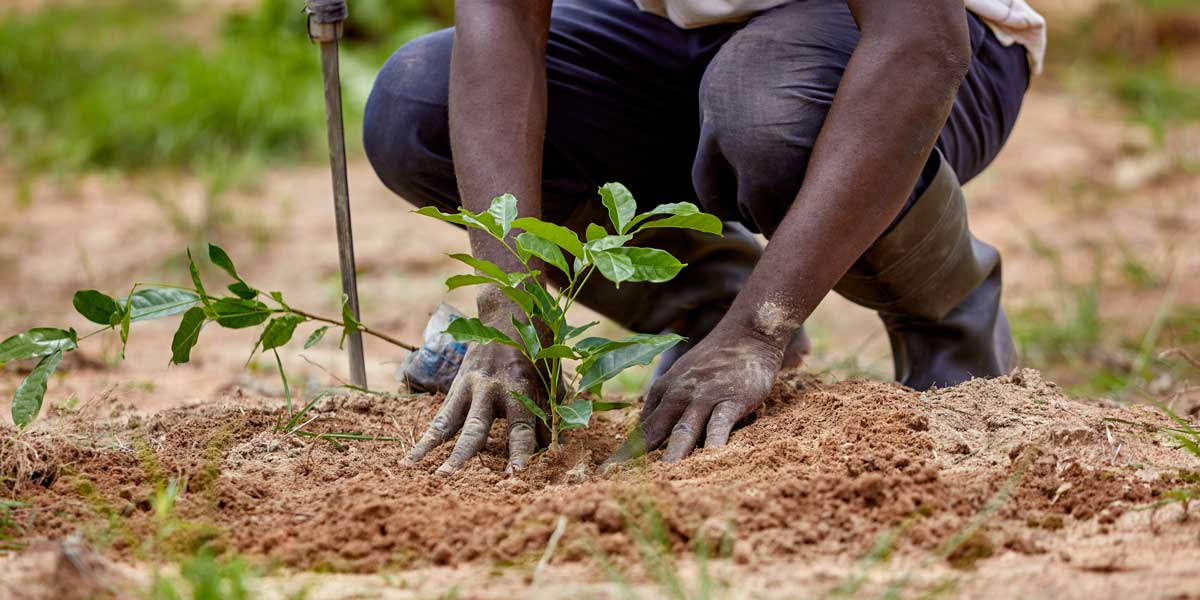In recent years, climate change has continued to dominate discussions across the world due to the adverse effects it is having in many countries. Parts of these negative effects are desertification, ocean surge and extreme weather. It is agreed that the world has to rise urgently to mitigate the situation or risk the catastrophe that may likely engulf mankind.
In Nigeria, the effect of climate change is seen in desert encroachment, especially in areas bordering the Sahel region. According to reports, Nigeria loses about 400,000 hectares of arable land every year to desert encroachment and other unsustainable human activities.
The country also loses around $5.1 billion annually to rapid desertification and drought in many parts of northern Nigeria.
According to the Nigeria National Meteorological Agency (NiMet), many parts of Nigeria experience drought periodically: Adamawa, Bauchi, Borno, Gombe, Jigawa, Kano, Katsina, Kebbi, Sokoto, Yobe and Zamfara are the most affected states. In Yobe, the stormy sand dunes encroach at the rate of 30 hectares annually, leaving many people homeless, thereby causing incessant migrations.
The Sahara Desert from the North advances at the rate of 0.6 kilometres per annum to the South. Additionally, it is estimated that about 75 million hectares of land in northern Nigeria are threatened by desertification, which portends grave danger to food security in the country and by extension, sub-Saharan Africa.
In addition, it is estimated that Nigeria has lost over 90 per cent of its total forest reserves, which accounts for about 10 million hectares or 10 per cent of Nigeria’s land mass. The country has the largest desertification rate in the world, approximately 3.5 per cent. Consequently, Nigeria loses between 350,000 and 400,000 hectares of land annually.
This is made worse by the rate of deforestation in the country due to a number of factors such as uncoordinated land use policy, urbanisation, agriculture, industrialization and the increasing activities of rural farmers and dwellers who fell trees for firewood as an alternative for fuel.
The consequences of this include soil erosion, drought and food scarcity. In addition, there are also social and economic consequences, especially forced migration. Indeed the recent challenge of insecurity, especially of the banditry in the North West is attributed to this.
What this presents is that the nation has to act fast to arrest this dangerous situation. One of the areas is massive tree planting. According to the Nigeria Conservation Foundation, Nigerians are required to plant over 350 million trees annually to avert the situation.
Sadly, Daily Trust notes that the nation is far away from taking measures to meet the target in spite of the urgency it requires. In fact, the nation’s official pledge to address the situation falls far short of this. In 2019, then President Muhammadu Buhari promised that the federal government was targeting the planting of 25 million trees. He made the pledge at the UN Climate Summit in New York.
There is no record to show how much has been achieved since the declaration, but one thing is certain, the nation is far from achieving this target, four years after.
We note that there has been a lack of official commitment to addressing this situation at all levels of government in the country, apart from a few states which have definite policies to address the situation. The ritual of annual tree planting campaign, which comes every August 3, now passes without notice as many states no longer observe it. There has also been neglect of forestry departments, especially at state and local governments. This department used to mount enlightenment campaigns on the need to plant trees and monitor the illegal felling of trees.
Even the National Agency for the Great Green Wall charged with pursuing these measures seems to have gone to sleep as most of its activities are not felt around the nation. Instead, what we hear is the claim that it spent N81 billion to plant 21 million trees in the frontline states. Many are wondering where these trees are, as such huge number could have made an impact if indeed they were planted.
We urge the House of Representatives which is currently looking into the utilization of ecological funds and other intervention funds of the GGW project, to properly investigate this claim and get the true picture of things.
Daily Trust believes that there is the need to engage the citizens in this task in order to avert a looming disaster and we call on the federal and state governments to take the lead on this.
The National Orientation Agency (NOA) needs to rejig campaigns towards involving local communities to realize the advantages of tree planting and the dangers of deforestation. Specific campaigns should be tailored for schools and youth organisations to catch them young and ensure the sustenance of the programme.
We also believe that voluntary organisations engaged in such campaigns should be encouraged to reach out to Nigerians, especially in rural communities.
This is a task that must be taken seriously by all for the sake of Nigeria’s future.

 Join Daily Trust WhatsApp Community For Quick Access To News and Happenings Around You.
Join Daily Trust WhatsApp Community For Quick Access To News and Happenings Around You.


